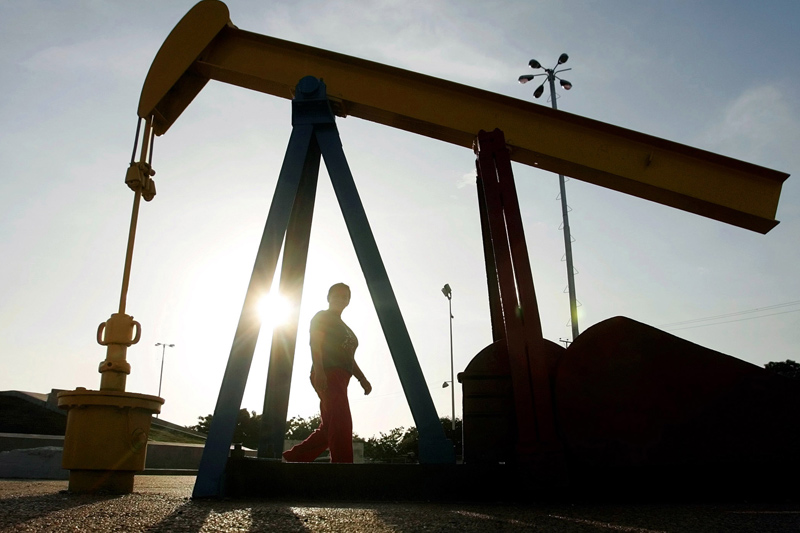Investing.com - Oil prices gained on Friday as global equity markets extended their slide. Meanwhile, data from the Energy Information Administration (EIA) showed U.S. crude stockpiles jumped more than expected last week.
Crude Oil WTI Futures for November delivery gained 0.52% to $71.34 per barrel at 12:01AM ET (04:01 GMT) on the New York Mercantile Exchange, while Brent Oil Futures for December delivery rose 0.6% to $80.74 a barrel on London’s Intercontinental Exchange.
Overnight, the S&P 500 Index fell more than 2% for a second straight day and is now in its longest slide since 2016. The Dow Jones Industrial Average dropped more than 500 points, and the NASDAQ Composite closed down 1.3%.
In Asia, China’s stocks also fell about 2% in morning trade, while Japan’s Nikkei 225 and Australia’s ASX 200 also traded slightly lower.
“The enhanced volatility in the market in general is spilling over into energy, as investors are reducing risk,” said Rob Thummel, managing director at Tortoise, which manages $16 billion in energy-related assets. “When you have volatile equity markets, the risk-off trade is happening and you’ve got a third consecutive build, that’s generally not a good recipe for crude oil prices.”
Meanwhile, the EIA reported on Thursday that U.S. crude inventories rose by 6 million barrels last week, compared with the general consensus of a 2.6 million-barrel increase.
Just a week earlier, the EIA reported a near-8-million barrel build in U.S. crude stocks, which was quadruple expectations.
In other news, OPEC cut its oil demand growth estimates for 2018 and 2019 in its closely watched Monthly Oil Market Report published on Thursday.
OPEC revised down its global oil demand growth to 1.54 million bpd this year, down by 80,000 bpd from the estimate in the September report, citing potential headwinds to global economic growth as the reason for the downgrade.
"We still estimate oil demand growing at 1.2 million to 1.5 million barrels per day for this year, and see the risk of a slowdown in 2019 if trade tension escalates," ANZ Research analysts said in a report.
